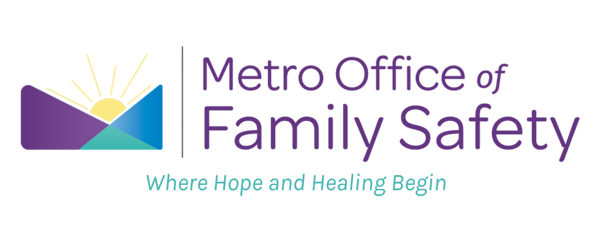Family Justice Centers
Finding Hope in the Courthouse: Nashville’s Court-based Family Justice Center
Linking two Family Justice Centers for complete Client Programming
Safety & Accountability: Assessing your Community’s Readiness for Change
Navigating Confidentiality: Best Practices and Legal Standards in Multi-Agency Family Justice Centers
Finding Hope in the Courthouse: Nashville’s Court-based Family Justice Center – the Jean Crowe Advocacy Center (JCAC)
Workshop Description: The Jean Crowe Advocacy Center (JCAC) is a unique resource that provides a Family Justice Center model within one of the most unwelcoming places for a victim of crime – the courthouse. The JCAC was developed in response to Nashville’s Safety & Accountability Audit that found multiple safety concerns in the courthouse and throughout the criminal justice system. The JCAC provides a services and support in a safe and secure location for clients who are waiting for court. This workshop will look at this distinctive model that provides innovative advocacy services for clients as well as partner connection with the DA’s office and non-profits while improving victim safety and ensuring offender accountability.
Objectives:
- Learn about Nashville’s unique method of supporting victim safety and advocacy needs during the criminal justice and OP civil court process.
- Understand the difference between a court-based and community-based FJC and the benefits of having both.
- Recognize the benefits of a Safety & Accountability Audit and the positive outcomes for a court system.
Linking two Family Justice Centers for Complete Client Programming
Alternate Title: Bridging Justice and Community: Integrating Services Between Court-Based and Community-Based Family Justice Centers
Workshop Description: This workshop focuses on the collaboration between court-based and community-based Family Justice Centers to provide comprehensive, holistic services to victims of interpersonal violence. By linking the resources and expertise of both types of centers, this partnership aims to enhance the support systems for survivors, streamline service delivery, and improve outcomes. Attendees will explore the benefits and challenges of such collaborations, share best practices, and develop strategies for effective integration to ensure that victims receive seamless and comprehensive care.
Learning Objectives:
- Understand the Roles and Functions of Different Family Justice Centers: Participants will gain a thorough understanding of the distinct roles, functions, and resources of court-based and community-based Family Justice Centers, and how these can be effectively leveraged to provide holistic services to victims of interpersonal violence.
- Develop Collaborative Strategies: Participants will learn to develop and implement collaborative strategies that facilitate seamless integration of services between court-based and community-based centers, including coordination of legal, social, and supportive services to enhance the overall support system for survivors.
- Enhance Service Delivery and Victim Outcomes: Participants will explore best practices for overcoming common challenges in collaboration, such as communication barriers and resource limitations, to enhance service delivery and improve outcomes for victims of interpersonal violence through a unified, multidisciplinary approach.
Safety & Accountability: Assessing your Community’s Readiness for Change
Alternate Title: Enhancing Safety and Accountability: Conducting a Systems-Wide Audit to Improve Community Responses to Interpersonal Violence
Workshop Description: This workshop provides an in-depth guide on conducting a systems-wide Safety & Accountability audit in your community, with a focus on evaluating the system’s response to interpersonal violence and understanding victims’ experiences with these systems. Participants will learn how to assess their community’s readiness for change and identify key areas for improvement to enhance victim outcomes. The workshop will cover the steps and methodologies involved in performing the audit, analyzing findings, and developing actionable recommendations for systemic change.
Learning Objectives:
- Learn Audit Methodologies and Procedures: Participants will gain a comprehensive understanding of the methodologies and procedures involved in conducting a systems-wide Safety & Accountability audit, including data collection, stakeholder engagement, and analysis of system responses to interpersonal violence.
- Evaluate Victims’ Experiences and Systemic Barriers: Participants will learn how to evaluate victims’ experiences with community systems effectively, identify systemic barriers that hinder victim support and safety, and use this information to inform the audit process and recommendations.
- Assess Community Readiness and Develop Action Plans: Participants will be equipped with the tools to assess their community’s readiness for change, develop actionable plans to address identified gaps and weaknesses and implement strategies to improve overall victim outcomes and system accountability.
Navigating Confidentiality: Best Practices and Legal Standards in Multi-Agency Family Justice Centers
Workshop Description: This workshop addresses the complexities of maintaining confidentiality in family justice centers and other multi-agency environments. Participants will learn about the best practices and legal standards essential for protecting the privacy of victims of interpersonal violence, including those outlined in the Violence Against Women Act (VAWA), Victims of Crime Act (VOCA), and Family Violence Prevention and Services Act (FVPSA). The session will cover the importance of confidentiality in fostering trust, strategies for managing information sharing among agencies, and practical guidance for compliance with relevant laws and regulations.
Learning Objectives:
- Understand Legal Standards and Compliance: Participants will gain a thorough understanding of the confidentiality requirements and legal standards outlined in VAWA, VOCA, and FVPSA, and learn how to ensure compliance within family justice centers and other multi-agency environments.
- Implement Best Practices for Confidentiality: Participants will learn best practices for maintaining confidentiality, including strategies for secure information sharing, data protection, and creating a culture of privacy that enhances trust and safety for victims.
- Manage Complex Confidentiality Issues: Participants will explore the complexities of confidentiality in multi-agency settings, including how to navigate potential conflicts between agencies’ needs and victims’ privacy rights, and develop practical solutions to manage these challenges effectively.


